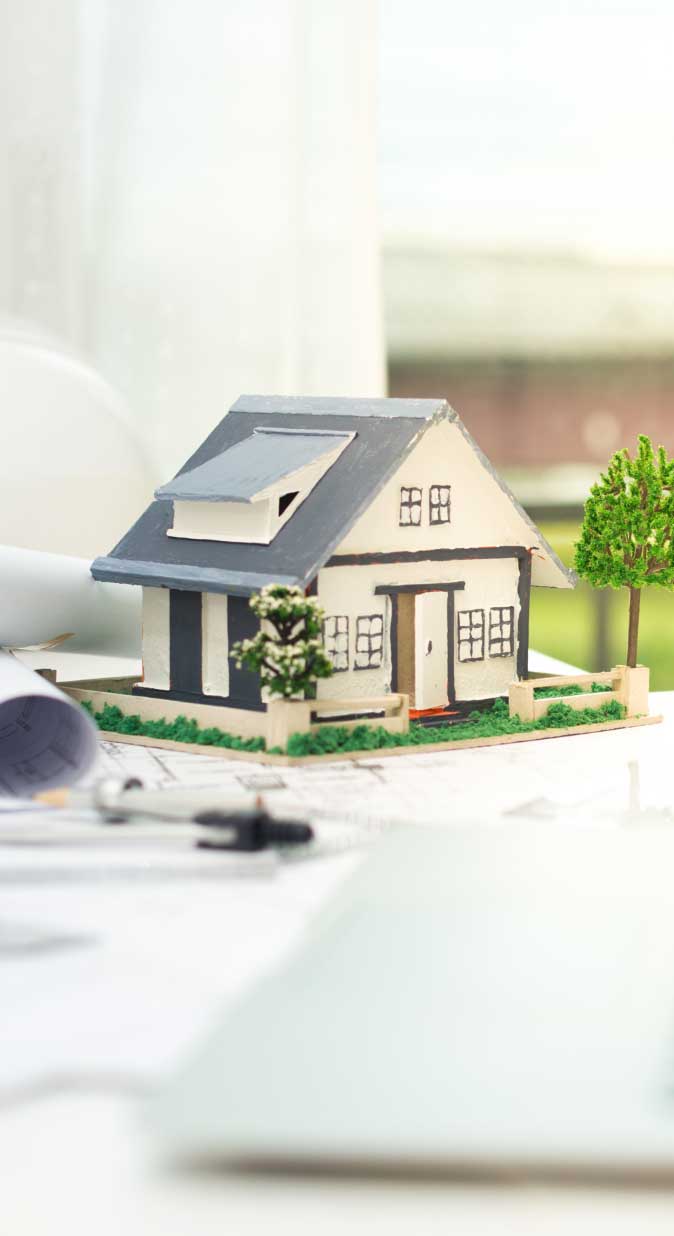
Your house is your most prized possession and your largest asset.
Your home insurance safeguards your most prized belongings: your home, your personal things and even your financial future.
The home insurance policy is usually a term policy—a policy that is in effect for a fixed period of time. The home insurance payment the insured makes to the insurer is called a premium. The insured must pay the insurer the premium for their home insurance each term. Most insurers charge a lower premium for home insurance if it seems less likely the home will be damaged or destroyed: for example, if the house is build with bricks the premium is lower then its build with wood.
Your home insurance usually safeguards you in two ways: financial loss and personal liability.
Financial Loss: Your home insurance will refund you if your home or personal things are stolen or if any other a sudden situation that is specified under your property insurance policy occurs.
If a sudden situation, like a fire, does arise, your home and garage will likely need to be renovated. You will be reimbursed for the value of items, such as furniture, electronic equipment and computers—or the items themselves will be replaced.
If you cannot live in your home while it is being renovated after a loss, your house insurance will pay for some of your extra living expenses, such as accommodations.
If you rent your home or own a condo unit, you might feel that investing in a home insurance quote is gratuitous. If you are just starting out and renting your first place, you might believe that you have nothing of real value that needs replacing should something like a fire occur. If you own a condo unit, you might believe that your condo corporation’s home insurance policy has you covered. Here is why whether you rent or own a condo, purchasing a home insurance policy is a good move.
If you rent your home, you may think you don’t need to bother with property insurance. Unless your landlord is directly responsible for the damage to your belongings or unit improvements such as a new carpet or built-in shelving in the closets that you paid for, his insurance likely won't reimburse you. It also won't protect you if you are sued for negligence. Condo Insurance
If your condo corporation has insurance, you may wonder why you need to purchase your own coverage. Here’s why:
Your condo’s corporation policy only covers items that are part of the building. You need your own home insurance to protect any upgrades you have made to the unit, such as carpets or an upgraded bathroom or kitchen.
You need to insure your personal things like furniture, computers, and other electronics. You need to protect yourself against personal liability for injuries to visitors to your home, or for damage you accidentally cause to your neighbour’s property.
Whether you make your home in a house, a condo, or a rental unit, the best way to protect it, your things and your liability is to purchase home insurance.
One thing to keep in mind when shopping around for a home insurance quote—there is no such thing as a “standard” home insurance policy. home insurance coverage varies significantly from one insurer to another. Companies that sell home insurance compete for business on coverage, service and price.
Burglary Insurance policy covers property contained in private properties, business premises, stocks owned, or for which insured is responsible or held in trust and/or commission. It also covers cash, valuables, securities kept in a locked safe or cash box in locked steel cupboard on specific request.
This Burglary Insurance covers loss or damage caused by
In respect of contents of private properties, offices, warehouses, shops, etc. and cash in safe or strong room.
Purchasing a property can be a life long achievement; you probably have invested a lot of hard work and money into your house or condominium.
Therefore, you should secure it with homeowners insurance. Although it is not compulsory, it is logical to protect your property against natural hazards and obviously things like burglary.
Your property should be insured so if a fire breaks out, lightning strikes it, a storm damages it or it is flooded etc. you will be covered.
Even if the worst scenario happens and everything needs replacing inside and out, from top to bottom, your insurance should pay for all the damage, plus the demolition work, cleanup work and rebuilding, also taking in to account price increases and higher costs since you purchased the property.
Nobody imagines when they buy a property things going wrong, but obviously things do go wrong for many people every day of the year. When there are storms around and your house suddenly suffers severe damage to the roof, it is very important to secure the house as quick as possible to prevent further damage, this is taken care of by the insurer. And if you had tenants, that could no longer live in your house the insurer would compensate you for the loss of rent.
Before taking out homeowners insurance on your condominium, you should inquire with the property management what their insurance is covering. Usually their insurance will cover the building and common areas, but does not cover your private property, furnishings or possessions. It also does not cover third party damages i.e. water leak from your condominium damaging a neighboring unit. It also will not cover you in the event of a burglary.
If you own a home or are purchasing a home, you should check the existing insurance value, after all, if it is too low; you will not get enough money for reconstruction to its original condition, and if it is over valued, you could be paying a too high premium. In addition, the value should be reassessed when any extensions, renovations or investments are made.